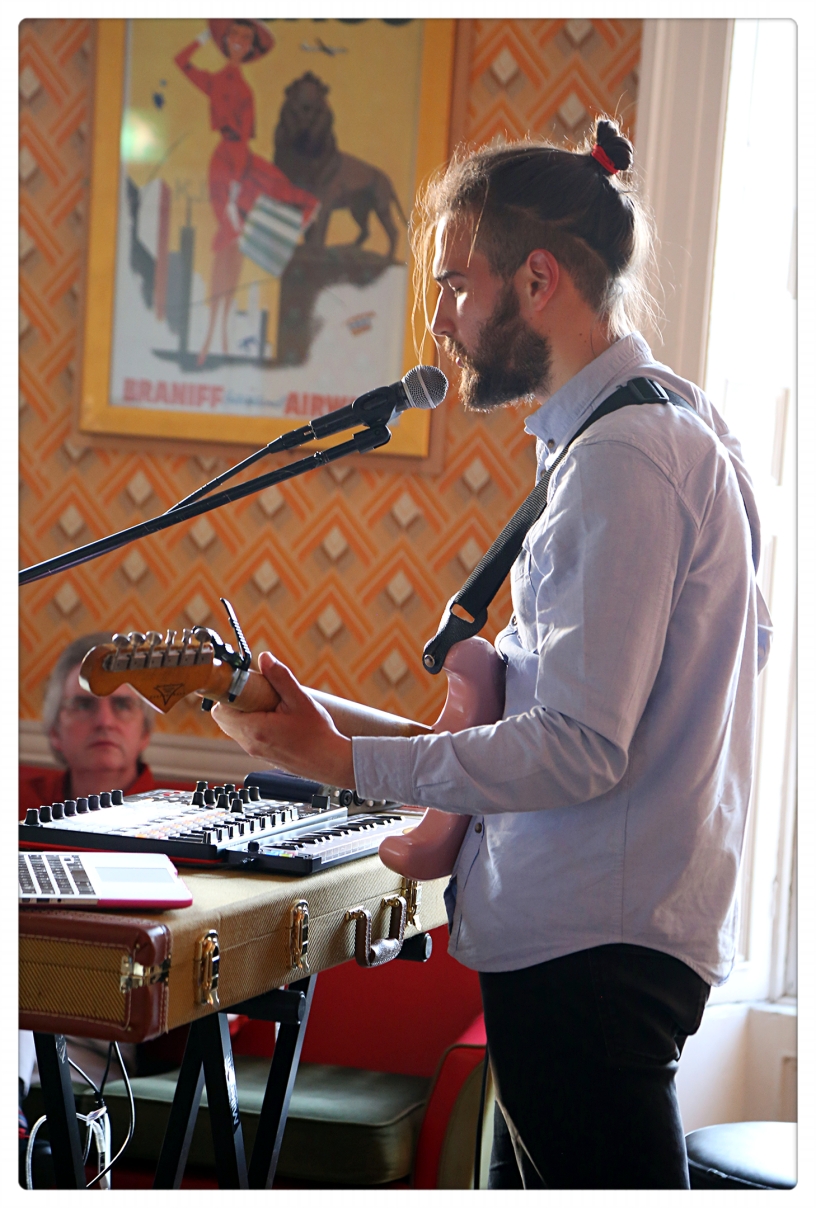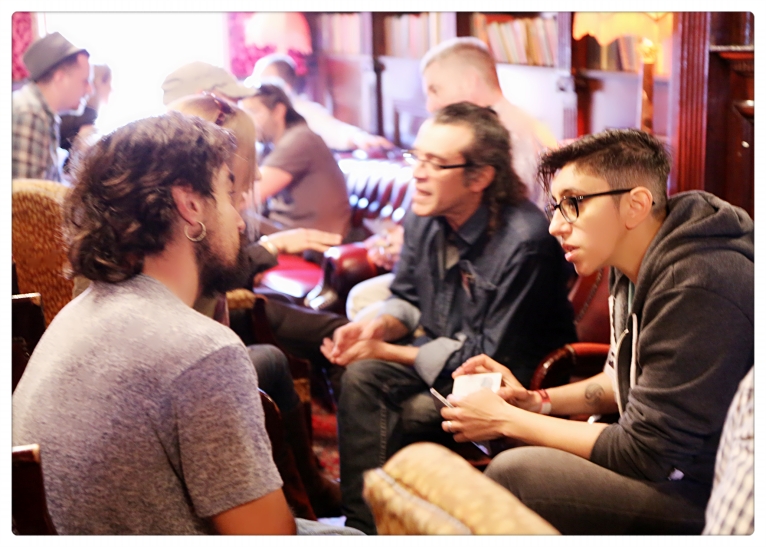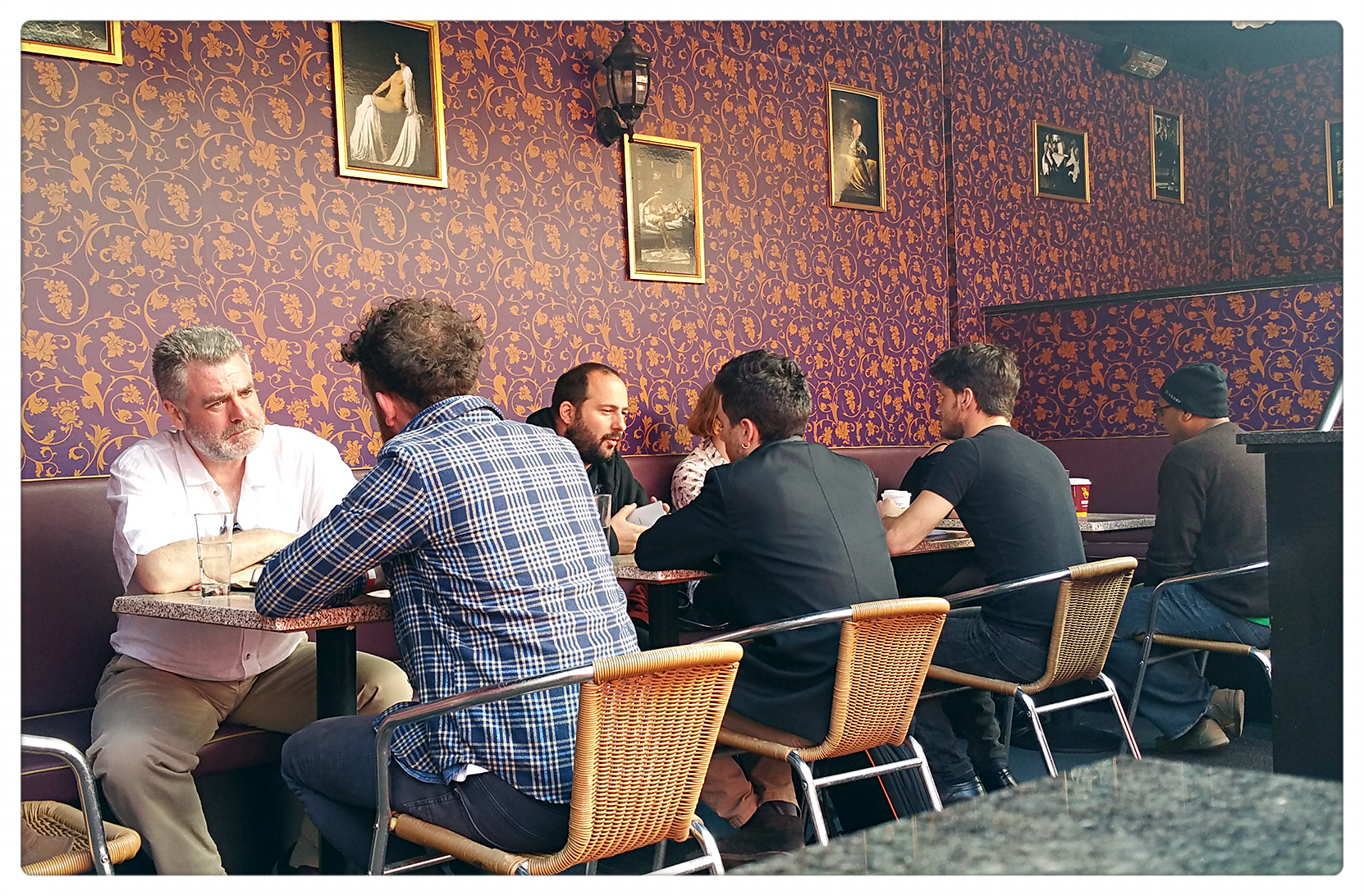How to Make Money as a Venue Owner
Whether you’re re-branding your old bar as a buzzing music hub or just getting into the game, the question is always, how do I make money as a venue host?
It really comes down to two things: 1), How you negotiate cost with artists and 2), booze sales. Selling drinks is pretty straightforward. Estimating the potential cost-benefit of an unknown artist on any given night, is not. Here's a few things you've got to know if you want to make money as a venue host.A Flat Rate
[caption id="attachment_403" align="alignright" width="408"] Photo taken at youbloom Dublin Music Festival[/caption]
For the indie artists that can't promise a surge of fans, a flat rate is often in their best interest. This will guarantee the band they'll get paid an agreed upon amount, regardless of ticket sales.
The number they’re asking for should be entirely based on the draw they can bring in. Remember the part about how important it is your selling beer? The concern over flat rate is not whether or not they'll make you rich at the ticketing booth. It's whether or not they'll be keeping your barbacks busy.
You have to factor in operational costs, what similar acts are receiving in the area, and projected earnings. Don’t be afraid to turn bands away if you believe they're asking for too high a price - Bands have money-making rules of their own to follow, and making friends with the local talent is not worth it if your venue can't sustain itself.
Photo taken at youbloom Dublin Music Festival[/caption]
For the indie artists that can't promise a surge of fans, a flat rate is often in their best interest. This will guarantee the band they'll get paid an agreed upon amount, regardless of ticket sales.
The number they’re asking for should be entirely based on the draw they can bring in. Remember the part about how important it is your selling beer? The concern over flat rate is not whether or not they'll make you rich at the ticketing booth. It's whether or not they'll be keeping your barbacks busy.
You have to factor in operational costs, what similar acts are receiving in the area, and projected earnings. Don’t be afraid to turn bands away if you believe they're asking for too high a price - Bands have money-making rules of their own to follow, and making friends with the local talent is not worth it if your venue can't sustain itself.
Claiming the Door
Bands with a following will often want the opposite from their undiscovered counterparts. Instead of a flat rate they might demand 100% of the door sales as payment. These artists are anticipating their paying fans will follow them in. If you’re not quite as confident as the band is about their ticket sales, be honest with them. Offer them a percentage of door profits for their first time at your venue. A door split of 80/20 with the artist taking the majority is not uncommon with lesser-known talent. Then, use that first night’s profits as a reference point. If the band brings in the audience they anticipated, you'll feel more secure promising them 100% of the door next time around.Stay in the Loop
 While at times it may feel like that dive-bar down the street with the open-mic night is your competitor, this does not have to be the case. It pays to build a relationship with other venue owners.
To make money as a venue, hosts can provide each other valuable intel on the local talent: who’s worth hiring, how they conduct business, and what their draw really is, compared to what they're asking for. Checking a band's concert history on a hub like Pollstar is a good way to "feel out" what type of pull they have had in cities similar to yours.
While at times it may feel like that dive-bar down the street with the open-mic night is your competitor, this does not have to be the case. It pays to build a relationship with other venue owners.
To make money as a venue, hosts can provide each other valuable intel on the local talent: who’s worth hiring, how they conduct business, and what their draw really is, compared to what they're asking for. Checking a band's concert history on a hub like Pollstar is a good way to "feel out" what type of pull they have had in cities similar to yours.
Know your Market & Differentiate Yourself
An ideal crowd is packed with fans of a venue, not of the band playing. Get an idea of who your target show-goer is, and build your venue to draw them in. A venue that is consistently hosting artists of a particular style will build trust among fans, and promise a consistent stream of attendees even when the headliner is unknown. Even though it can be tricky straddling the sidelines of a music scene, many third-party fan club ticketing platforms have sprung up to make it easy. While ticketing companies like Live Nation/Ticketmaster and Eventbrite partner with venues to pull in appropriate acts, they often disproportionately serve big-name acts. Meanwhile, weighty surcharges are enough to turn away potential concert-goers from seeing smaller talent. For this their are splatforms like Songkick, Artist Arena, and youbloom Connect which link venues with lesser-known artists that are better tailored to a venues style and atmosphere. Fan-club ticketing companies like these allot artists a percentage of tickets (usually 8 - 10%) for them to sell directly to their fans. Unlike the larger ticketing companies that make their revenue off hefty service charges, fan-club ticketing brands usually take their share from the artists' profits at generally lower rates.
Giving artists a hand in their own ticket sales increases selling incentives for the bands. Companies like youbloom Connect have raised the stakes by also allowing fans to sell tickets, increasing selling power for the venue in exchange for discounted tickets. Plus, hosts get more security of a show's success from increased pre-sale tickets.
Fan-club ticketing companies like these allot artists a percentage of tickets (usually 8 - 10%) for them to sell directly to their fans. Unlike the larger ticketing companies that make their revenue off hefty service charges, fan-club ticketing brands usually take their share from the artists' profits at generally lower rates.
Giving artists a hand in their own ticket sales increases selling incentives for the bands. Companies like youbloom Connect have raised the stakes by also allowing fans to sell tickets, increasing selling power for the venue in exchange for discounted tickets. Plus, hosts get more security of a show's success from increased pre-sale tickets.
Get Creative
While getting your bar or venue up and running feels mostly like a numbers game, there are also creative steps you can take to bring in some extra cash. As I've mentioned before, your ability to move booze will always be the staple form of income, but expanding your amenities to include a food menu will do more of the same. And you don't have to get fancy - becoming locally-renowned for your bar's half-pound blooming onions is a milestone in itself.
Finally, make your space rentable. More than ever, people are looking for a one-of-a-kind atmosphere that can double as a work-space, or be rented out for company retreats, rehearsals, or a recording studio. Platforms like youbloom Connect work for these types of events, making it easy for you to choose from a variety of acts that suit whatever private event you're hosting.
By knowing how to properly negotiate with bands, and by innovating your space to draw a loyal niche of show-goers, you'll be able to make money as a venue at a sustainable rate; and beer, don't forget about selling lots and lots of beer.
As I've mentioned before, your ability to move booze will always be the staple form of income, but expanding your amenities to include a food menu will do more of the same. And you don't have to get fancy - becoming locally-renowned for your bar's half-pound blooming onions is a milestone in itself.
Finally, make your space rentable. More than ever, people are looking for a one-of-a-kind atmosphere that can double as a work-space, or be rented out for company retreats, rehearsals, or a recording studio. Platforms like youbloom Connect work for these types of events, making it easy for you to choose from a variety of acts that suit whatever private event you're hosting.
By knowing how to properly negotiate with bands, and by innovating your space to draw a loyal niche of show-goers, you'll be able to make money as a venue at a sustainable rate; and beer, don't forget about selling lots and lots of beer.
